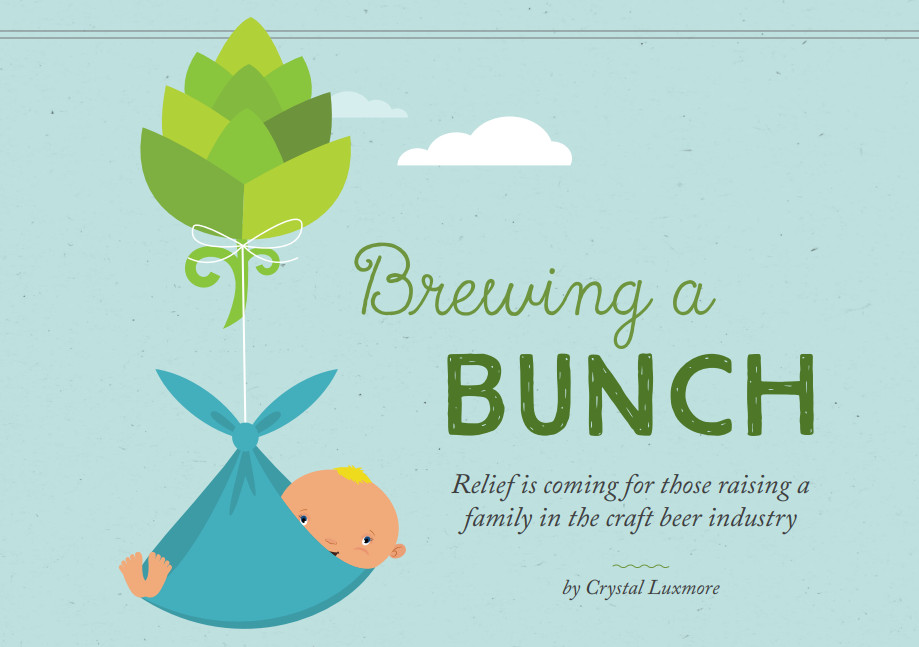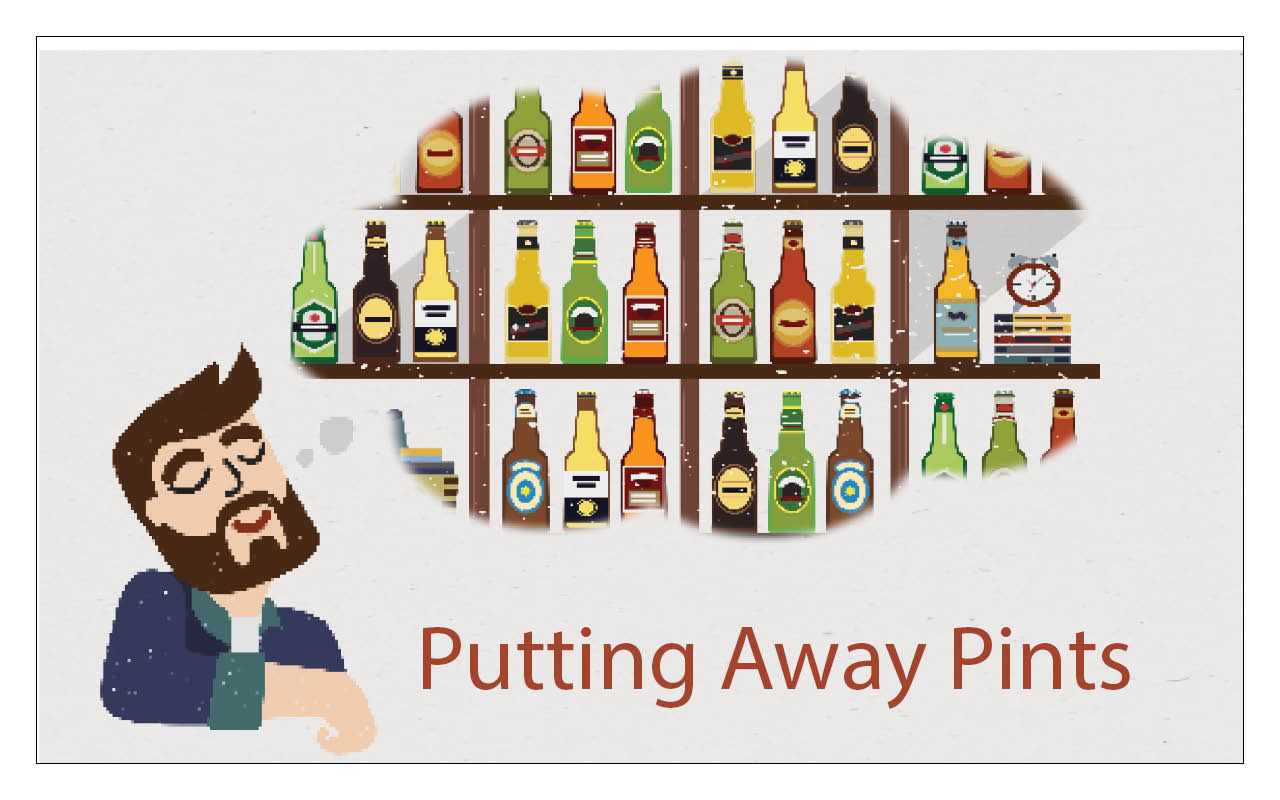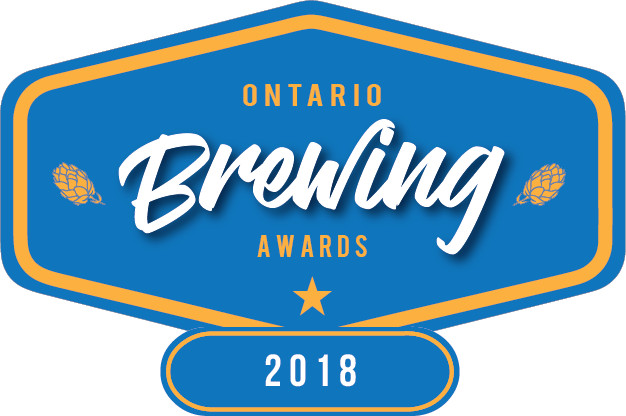Doing one thing really, really well again
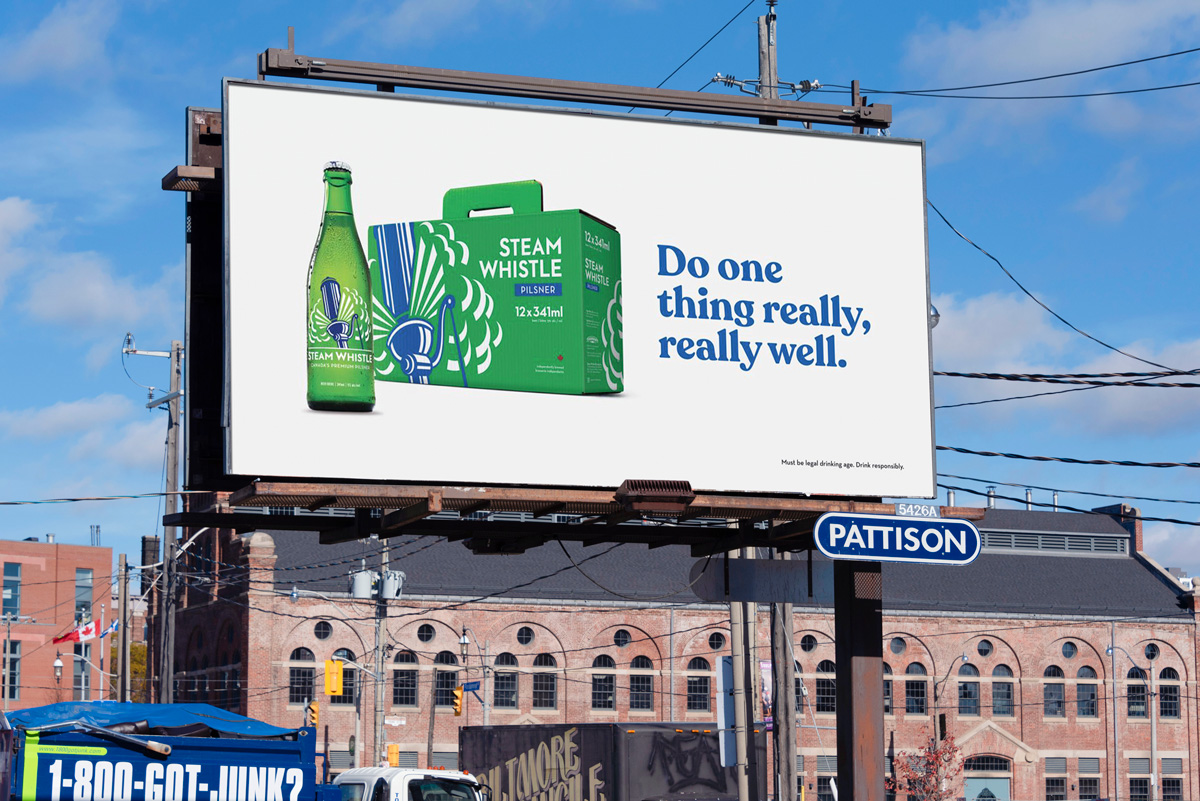
Somewhere along the way, Steam Whistle Brewery lost its way.
Founded in 2000, Steam Whistle, with its distinct green bottle, has a ubiquitous presence in bars and restaurants across Canada, enjoys a prominent location in a tourist-saturated section of Toronto across the street from the country’s only Major League Baseball stadium, and, importantly, has a memorable slogan: “Do one thing really, really well.”
They have the sort of brand recognition and status that the average craft brewery marketer, tweeting from a damp retail counter somewhere, could only dream about. Hell, even if you didn’t like their beer, you sure knew who they were.
Around 2017, things started to get weird.
First, Greg Taylor, one of the company’s three co-founders, left the business to pursue an opportunity in cannabis. Not long after that, Cam Heaps, the CEO and last remaining cofounder, also announced his intention to retire; ushering in an opportunity for slavering, frustrated marketers to finally have their way with a brand that had ostensibly locked in its concept from day one. After 18 years of working under the restraints of having one beer in a green bottle, growing bored touting sustainability messaging, and promoting engagement with local arts, the marketing team seemed to launch a coup of the company and, in what I picture as an orgy of slide decks, agency lunches, and art mock-ups, inexplicably announced the arrival of Von Bugle Brewing—a sort of sub-brand to Steam Whistle. The concept was ostensibly a separate brewery (but within Steam Whistle’s brewing facility and distributed by its sales team), with distinct and weird marketing I imagine was borne of a drug-fueled brainstorming session.
Marketer one: “The tap handles will be BUGLES!”
Marketer two: “We’ll brand a gold BMW! *snorts a line of cocaine off a hunting knife* AND WE’LL PARK IT RIGHT ON THE FUCKING LAWN!”
Von Bugle Brewing launched with a decent but not spectacular Munich-style lager which was inarguably well-made but about as interesting as small talk on the elevator with a co-worker.
It was a curious misstep for Steam Whistle from being a national brand into seeking a new niche market—and doing it with a beer the increasingly adventurous Canadian craft beer consumer was unlikely to give a second thought.
Then the wheels really fell off.
The company that did one thing really, really well quickly made a series of announcements that they were going to be doing a bunch of other things. In 2019 they launched a second beer under the Steam Whistle brand, a pale ale, which aped all the branding of their flagship pilsner, except the can was…blue! This was quickly followed by a session light lager, and then a lemon shandy, and then a seasonal harvest ale. There were talks of a non-alcoholic Steam Whistle offering and even a press release about a cannabis venture. Suddenly the Good Beer Folks were doing six things poorly.
Somewhere in this twisted odyssey of poor decisions, the company that had since its inception prided itself on sustainable and environmentally-friendly practices also introduced superfluous packaging: a piece of foil to cover the tops of all their cans. The “purity seal” was intended to keep the top of a beer can as clean as possible and instantly became the source of so much mockery and derision that I developed carpal tunnel syndrome from roasting them on twitter.
As someone who has followed Steam Whistle’s growth as a company for years, I watched all of this with head-scratching bewilderment and wondered, “What the fuck are they doing to this brand?”
I wasn’t alone: Greg Taylor returned as CEO in 2020.
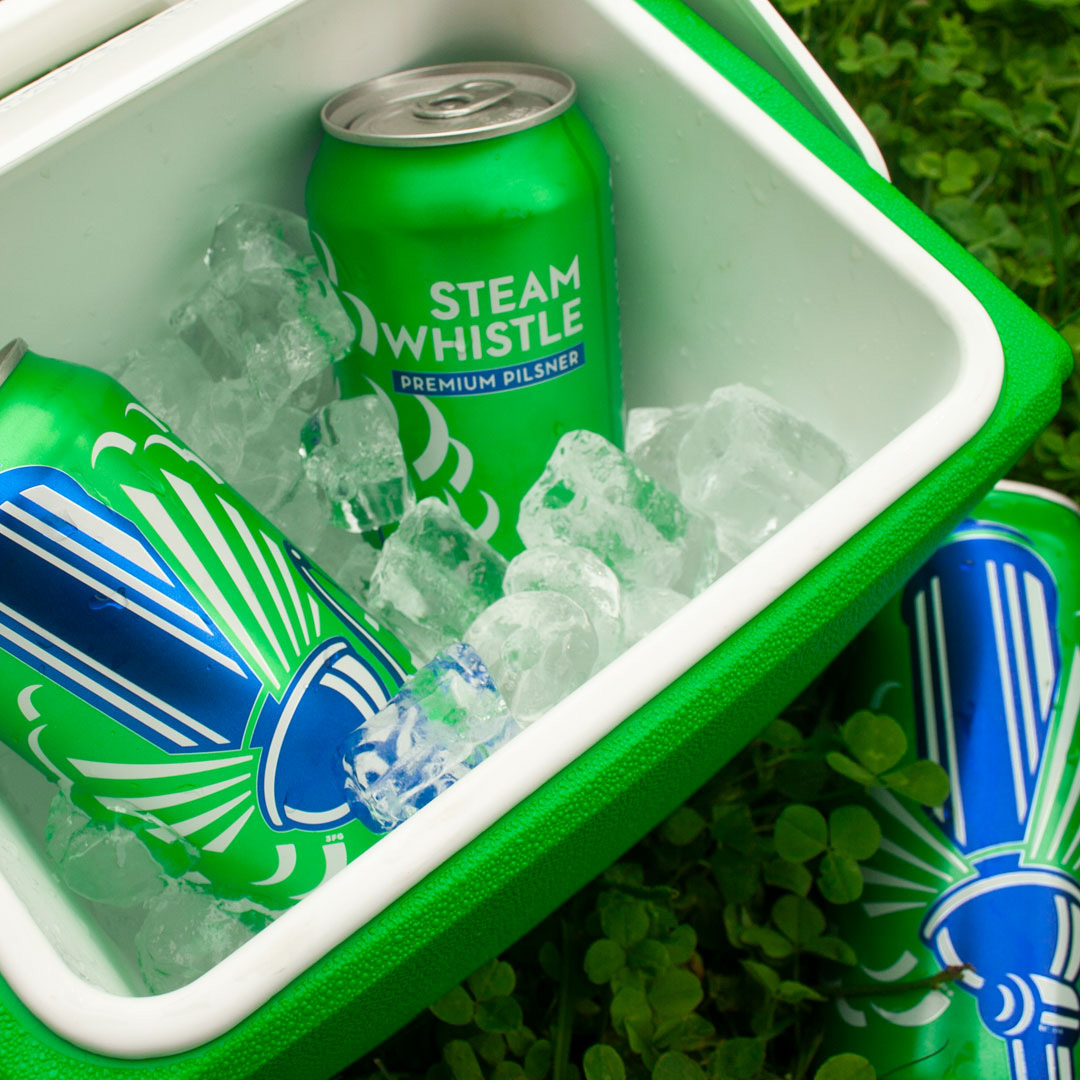
Taylor dabbled in a couple of cannabis and cannabis-infusion-related ventures after retiring from Steam Whistle, but when I spoke with him upon his return, it seemed clear to me that watching what was happening to the company he built for 20 years was something of a distraction, like trying to focus on your Zoom meeting while your son texts you that he’s on his way to get a neck tattoo.
One of the first things Taylor did was to put the tortured Von Bugle Brewery out of its misery. there was a whiskey-soaked purge in Etobicoke—scenes of a car crusher filled with gold BMWs, purple cans, and hundreds of bugle tap handles beside a blazing bonfire of Kazbek hops—but all who were allegedly present that day swore a blood oath to never speak the name Von Bugle again.
Taylor also publicly committed to promoting diversity within the company and pledged to elevate more women to leadership positions. In his first week back at the helm, he promoted Erica McOustra to brewmaster. He also shook up the Steam Whistle management team, promoting Tierra Gordon from within the company to the role of distribution manager and bringing Lorna Willner back to the company as the VP of Human Resources with stated goals that included having a safe and harassment-free workplace. She stopped hiring temporary workers in favour of permanent jobs—all moves that to me signified the company was again thinking long term.
Importantly, with a wanton disregard for shipping “impure” beer, he mercifully killed off the foil purity seal, daring once again to send canned beer out into the world, lidless.
Of course he still had the problem of all these bastardized offshoots of Steam Whistle in the marketplace, muddying the cofounders’ original vision.
“The only real customer feedback that stuck with me when I returned,” he told me, “was when I was in my local Beer Store and, because we had rolled out the shandy recently, the employee at the Beer Store said to me, ‘You guys gave up on the pilsner, eh?’ To me that was heartbreaking. To think that the perception was we had given up on the brand we had been building essentially since 1998.”
In order to restore the brand but also meet the need to offer a diverse portfolio in an increasingly crowded craft beer market, Taylor made moves to add depth to their lineup without sacrificing what he and his partners built. In 2021 Steam Whistle and Victoria, B.C.-based Phillips Brewing and Malting announced a partnership to distribute each other’s beer. Steam Whistle would represent, promote, and distribute Phillips’ beers in Ontario and would enjoy distribution of their beer in Western Canada. This added further depth to Steam Whistle’s “partnership” strategy that saw them taking on Canadian distribution of Colorado’s New Belgium Brewing in 2019.
Then, in February of this year, Steam Whistle completed the acquisition of Beau’s Brewery—the popular Ottawa-area brewery founded in 2006 with a reputation for experimental beers and a similar philosophy related to sustainability.
These moves gave Taylor’s sales reps the ever-important diversity of selection they need to have regular conversations with their licensees and let them compete for more taps. “We know that sales reps have an easier time getting two of our beers on tap when they can offer Steam Whistle and something from Beau’s for example,than say Steam Whistle Pilsner and Steam Whistle Light Lager.”
With distribution deals for a storied American brewery and a west coast Canadian brewery, plus the Beau’s portfolio which can live on as a separate brand, there was no longer a need for an expansion of the original brand. All that was left to do was to return the Steam Whistle brand to its original mission statement.
In July, Taylor did just that.
Launched with a straightforward advertising campaign in major Canadian cities, Steam Whistle announced a return to the company’s roots with no frills images of their beer alongside the tagline, “Do one thing really, really well.” This was accompanied by a blog post explaining the decision to discontinue Steam Whistle brand extensions because it was “diluting [their] efforts.”
Now, Taylor tells me, the plan is to re-establish Steam Whistle’s place in the market as a premium beer. It’s a gutsy move to prioritize one beer in a marketplace that favours depth of portfolio, and gutsier still to position that beer, which may have lost some of its lustre with consumers, as a premium product, but with Taylor at the helm, a portfolio of partner beers to hock, and a newly-refocused McOustra leading the brewing team, it feels like it can be a winning strategy.
“The craft beer industry is constantly evolving and Steam Whistle’s return to Do One Thing makes our place in it very clear,” McOustra tells me via email. “If we can continue to strive for perfection in making our pilsner, that’s more valuable to us and to our customers than chasing beer trends.”
She tells me the company has doubled down on sourcing the best quality ingredients for their beers to adapt to a challenging North American barley crop and has selected a single lot of Czech Saaz hops “with beautiful aromatics” that “elevates our beer.”
She is also perhaps less pragmatic than Taylor about the move as a shrewd business decision, but her enthusiasm to “do one thing,” is clear when she calls returning the focus to their pilsner as simply, “Doing what we love, with no compromise.”
I’ll drink to that.

